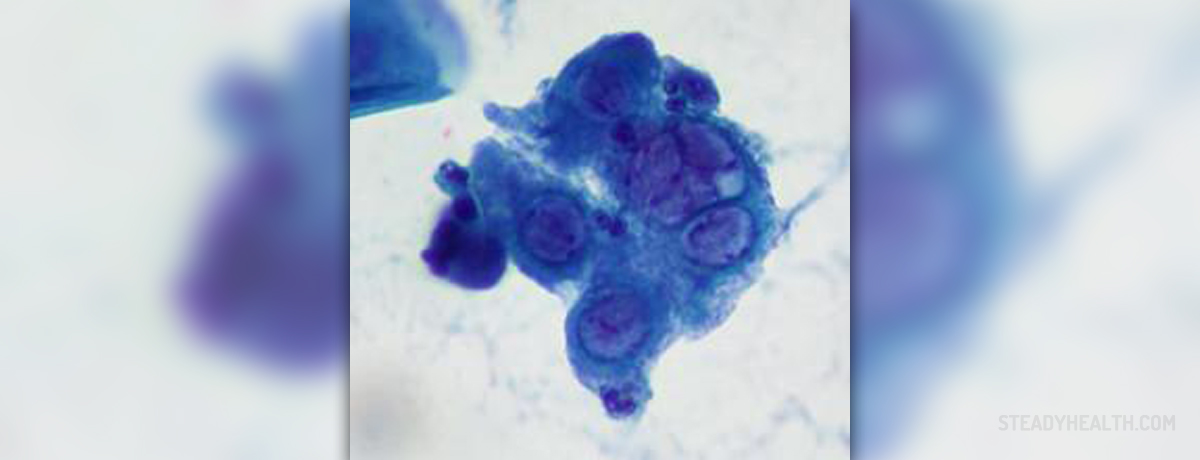
Both Herpes simplex viruses type 1 and 2 may be blamed for the onset of genital herpes. The infection may be asymptomatic or rather severe interfering in even the simplest everyday tasks. Many times patients end up with ugly and painful blisters and sores scattered in the genital area. These lesions need around two to four weeks to completely heal. Recurrent infection is expected to occur weeks or months after the initial attack, but it is, fortunately, milder than the previous one. Genital herpes is recurrent and the number of recurrent attacks significantly drops over a period of years.
Genital Herpes - Transmission
Viral particles are found inside blisters and they are easily released once these burst. The infection is, therefore, spread via unprotected sexual intercourse with a person suffering from acute genital herpes or the one with recurrent infection and active blisters and sores.
Transmission is also possible if a person is infected but there are no clear signs of acute infection (there are no visible blisters or sores).Genital Herpes - Symptoms and Signs
Since the infection may be asymptomatic, most individuals are not aware of the fact they are suffering from genital herpes.
On the other hand, symptomatic disease includes blisters that are distributed to different parts of the genital area, sores which form after blisters rupture, redness of the underlying skin, severe pain and additional flu-like symptoms such as fever and swelling of regional lymph nodes. Depending on the very location of blisters and sores, some patients additionally complain about difficulty and pain while urinating and problems with defecation.
All symptoms and signs of initial attack occur within 2 weeks after transmission of the viruses and the same period of time is necessary for all sores to completely heal. Genital Herpes - Additional Problems
Genital herpes may be a cause of recurrent genital sores which are a major source of pain and discomfort. Furthermore, this infection can cause plenty of complications in immunocompromised patients such as HIV patients, cancer patients etc.
Acute genital herpes during pregnancy may be transmitted to the baby while passing through the mother's birth canal.
Finally, it is confirmed that people who are suffering from genital herpes are more likely to contract HIV (if having unprotected sex) than healthy individuals and vice versa. Genital Herpes - Treatment
Even though there is no cure for genital herpes and once the virus is introduced to the body it remains inside, symptoms and signs of the infection may be brought under control with some antiviral drugs. These medications prevent frequent recurrent attacks of genital herpes as well.

















Your thoughts on this
Loading...